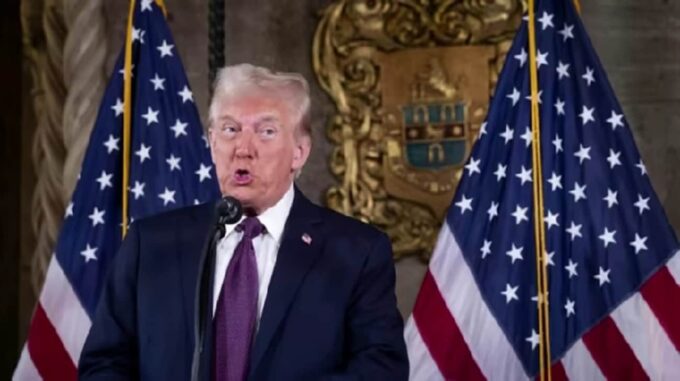During his pre-election campaign period and in the first months of his presidency, Donald Trump and his team showed a strong interest in radical changes to the U

S. immigration system. According to reports from American media, particularly The Washington Post, the administration of the former president reached out to the Ukrainian government with a rather ambiguous proposal: to accept on Ukrainian territory deported individuals from the U.S. who are citizens of third countries. This initiative caused significant resonance and discussions within diplomatic circles. Sources with access to internal White House documents indicate that at the end of January 2020, an American official conveyed to Ukrainian colleagues a so-called "proposal plan." This plan involved housing illegal immigrants deported from the U.S., who are not Ukrainian citizens, on Ukrainian territory. Although Ukraine was then in a state of war, with its economy and infrastructure facing serious difficulties due to Russia’s military aggression, Washington insisted that Ukraine should demonstrate a "willingness to cooperate" on immigration issues. According to the obtained documents, Ukraine received this proposal at the end of January. However, it is currently unknown whether it was officially accepted or if Kyiv responded in any way. It is only known that a Ukrainian diplomat informed the U.S. embassy of the intention to provide an official response after formulating the government's position. Insider sources close to diplomatic circles noted that the question of the possible reception of deported individuals has not yet been discussed at the highest level. Some sources emphasized that the U.S. did not issue any official political demands regarding the acceptance of deported Ukrainian citizens; therefore, this initiative remains at the level of private proposals and diplomatic correspondence. Another significant component of Trump’s "immigration plan" was the policy aimed at accelerating deportation processes from the U.S. In this strategy, agreements had already been concluded with several Latin American countries such as Mexico, El Salvador, Costa Rica, and Panama, which agreed to accept illegal migrants deported from the U.S., despite not being their citizens. Recent data also indicate that the administration was considering the possibility of revoking temporary legal status for approximately 240,000 Ukrainians who left for the U.S. after the start of Russia’s full-scale invasion of Ukraine. This meant that many of them could be at risk of deportation, causing significant concern among the Ukrainian diaspora and diplomatic circles in Kyiv. Donald Trump, at that time, explicitly criticizing the open-door immigration policy, stated that his country needed "bold justice" to build a "strict and effective immigration system." At a rally in Michigan commemorating his 100 days in office, he praised the current course and promised drastic changes in U.S. domestic policy. Trump hinted at "the deepest reforms in the last hundred years" and discussed a tough stance towards China, including tariff restrictions and immigration measures, which he claimed would provide a new level of security and control. According to investigative journalism projects, the Trump administration developed a comprehensive deportation plan, which, based on collected data, was supposed to target about a million people within a year. This was part of an ambitious strategy to restore border control and reduce illegal migration, which faced harsh criticism from human rights organizations and the international community. However, these plans were not just on paper—they could have substantially impacted migration situations both within the U.S. and beyond, sparking widespread debate over humanitarian consequences and international responsibility. Thus, the U.S. government’s proposal regarding Ukraine—despite currently remaining unanswered or met with cautious refusal by the Ukrainian government—clearly demonstrates the features of U.S. domestic and foreign policy during Trump’s presidency. It also fits into a broader context of discussions on migration reform, state security, and international cooperation on deportation issues. This development further exemplifies the complex diplomatic balancing act of a country trying to reconcile internal interests with international obligations, while responding to the challenges of the modern globalized world.

